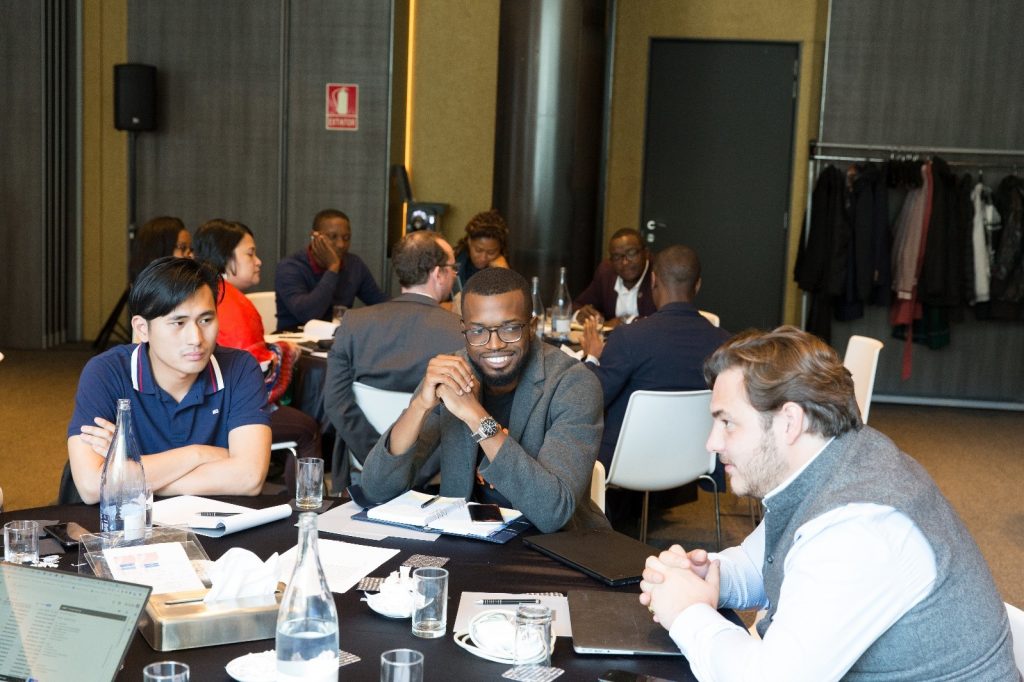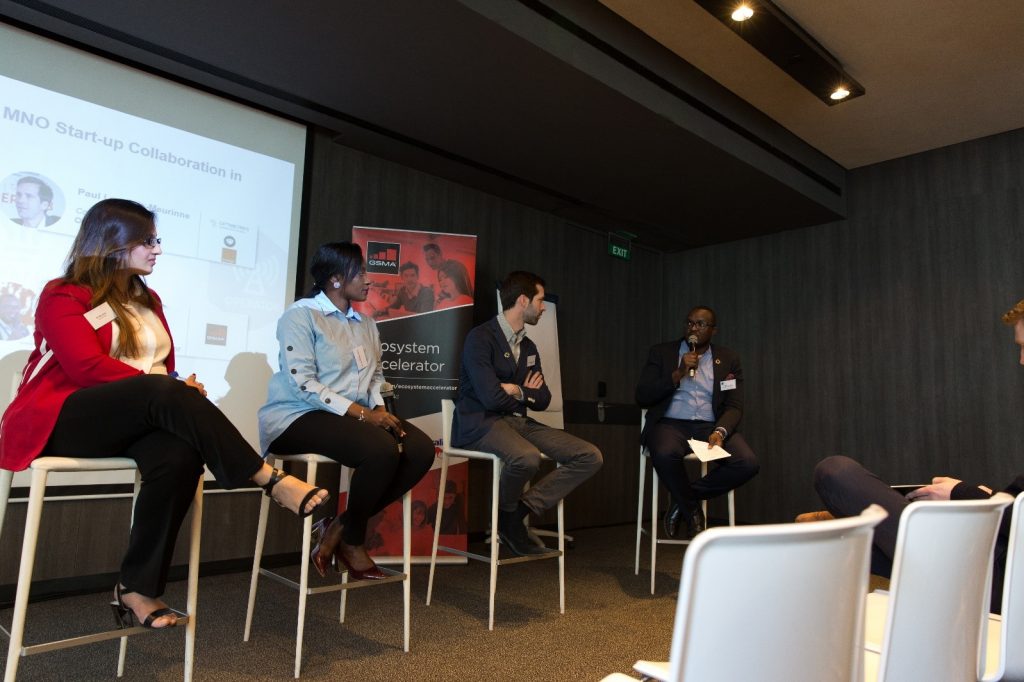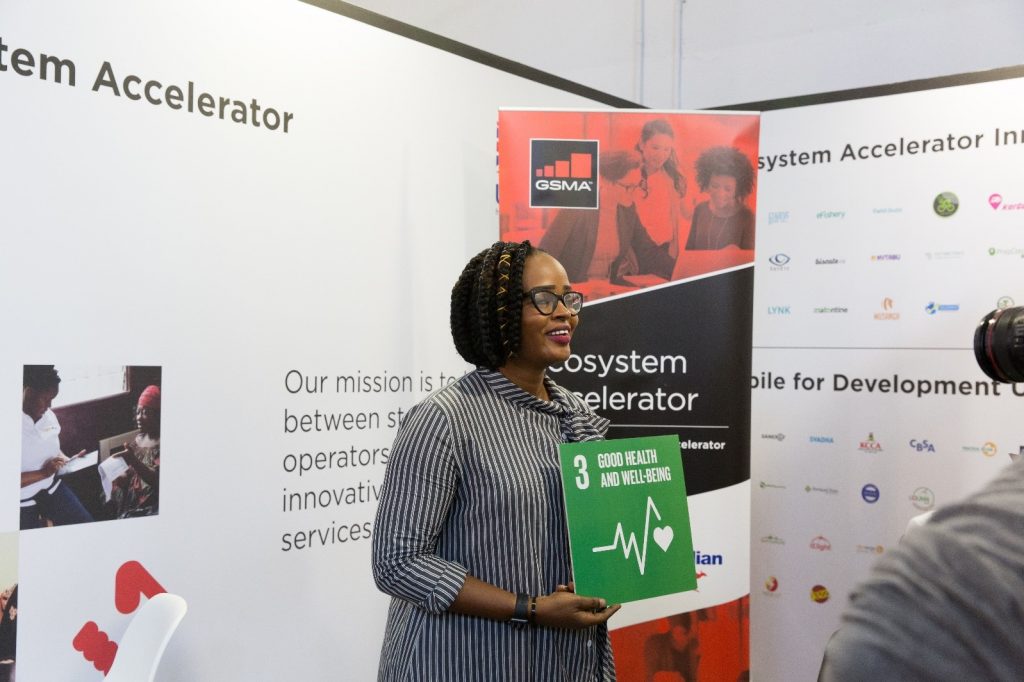Back in February 2018, we revealed a new cohort of start-ups from across Asia Pacific and Africa selected for the second round of the Ecosystem Accelerator Innovation Fund. In August 2018, we then updated you on their progress at the six-month mark. Now, a year into working with these start-ups, it’s time to reflect and look back at their most recent developments. Before delving into the progress made, we must highlight that this blog marks the one-hundredth blog post since the launch of the Ecosystem Accelerator programme.
One of the main touchpoints our team had with these start-ups was between 21 and 28 February 2019. This was when we hosted the Ecosystem Accelerator annual bootcamp in Barcelona, Spain ahead of GSMA’s flagship event, MWC 2019. We reflect on the whole week of events in this blog.
Since our last update, we have had the opportunity to share some of the work done by these start-ups in two of our most recent publications – our quarterly insights report, ‘Start-ups and Mobile in Emerging Markets: Issue 4’ and our portfolio video, ‘Get to know the Innovation Fund Start-up Portfolio’.
Commercial fundraising is accelerating: $5,130,000 raised in the last six months
As reflected in our August 2018 blog post, the Round 2 start-ups had collectively raised a bit less than $3 million during the first six months of being part of the Ecosystem Accelerator programme. The amount raised over the last six months nearly doubled to more than $5.1 million across the Round 2 portfolio.
- eFishery (Indonesia) – IoT-based smart fish feeding machines for commercial aquaculture. The Bandung-based fish-farming start-up had equipped more than 20,000 fish and shrimp ponds across the country (as of early April 2019). The start-up continues to deepen its partnership with mobile operator Telkomsel. Both parties jointly developed NB-IoT devices for the aquaculture sector (TINC). In addition to this partnership, eFishery raised $4 million in November 2018 with investors like Aqua-spark, Wavemaker Partners, 500 Startups, Maloekoe Ventures, Social Capital, Unreasonable Capital, and others, taking part in the round (e27). Find out more about eFishery in the case study published in our latest quarterly insight report.
- Farmcrowdy (Nigeria) – A digital agricultural platform for individuals and businesses to invest in farming projects. As of early March 2019, Farmcrowdy has supported over 11,817 farmers in Nigeria. In addition to raising $1 million in December 2017, the Lagos-based team secured another $1 million in March 2019 from previous investors Cox Enterprises and Techstars, along with local investor Ajayi Solutions (CNBC). In early April 2019, Farmcrowdy launched Farmgate Africa, a subsidiary of the start-up that will focus on providing major processors and international buyers the opportunity to purchase commodities directly from local farming clusters.
- Kargo (Myanmar) – Online platform allowing businesses or individuals to request trucks for pickup and delivery services. In March 2019, the logistics start-up secured a $130,000 loan from Yoma Bank to further fuel its business growth and drivers’ income (DealStreetAsia). As of early April 2019, Myanmar-based Kargo had almost 2,000 truck drivers on its platform.

Logistics Roundtable Discussion: (Left to Right) Jay Kong (CEO, Joonaak), Emmanuel Kwenda (CFO, Musanga Logistics), George Oliver (Chief Business Officer, Kargo Myanmar)
Mobile operator partnerships: Ecosystem Accelerator portfolio start-ups continue to make headway with mobile operators
- Sehat Kahani (Pakistan) – M-Health services provided by women doctors to marginalised populations through telehealth. In December 2018, Sehat Kahani partnered with Pakistan’s largest mobile operator Jazz Pakistan (ProPakistani). Under the partnership, Jazz’s mobile money service JazzCash is integrated into the Sehat Kahani app, allowing patients to pay for various Sehat Kahani services using JazzCash. Jazz also provides m-health with subsidised data rates to the e-Hubs across Pakistan. Sehat Kahani completed its Ecosystem Accelerator project in March 2019, reaching over 20,000 patients.
- Musanga Logistics (Zambia) – Mobile platform to send parcels through a network of micro-entrepreneurs (independent cyclists, riders and drivers). In October 2018, Musanga Logistics signed a mobile money integration partnership with MTN Zambia, the leading mobile operator in the country (Digest Africa). The monthly driver earnings were at $32,213 in the first quarter of 2019. The MTN Zambia partnership simplifies Musanga’s payment collection and reduces reliance on cash. Beyond providing a payment solution, Musanga’s partnership with MTN will also enable its users and drivers to access mobile financial services, for example, microloans that would allow drivers to purchase fuel ahead of deliveries. Find out more about Musanga Logistics in the case study published in our latest quarterly insights report.
- Lynk (Kenya) – A digital platform that connects households and businesses with verified domestic workers, artisans and blue-collar professionals. As of early April 2019, more than 26,980 jobs and projects have been booked and completed through the Lynk platform. In February 2019, Lynk collaborated with Safaricom’s e-commerce platform, Masoko, to launch a pilot to cross-sell Lynk services. Customers can now buy beauty services from Lynk Pros through the Masoko platform. Back in September 2017, Safaricom invested in Lynk through the mobile operator’s corporate venture capital fund, Safaricom Spark Fund (here).

Mobile Operator Start-up Collaboration Panel at Ecosystem Accelerator Bootcamp 2019 (Left to Right) Dr. Iffat Zafar (COO & Co-founder, Sehat Kahani), Marième Diop (Principal, Orange Digital Ventures), Paul Langlois-Meurinne (CEO, Optimetriks), Martin Karanja (Market Engagement Director, GSMA Ecosystem Accelerator).
Deepening external partnerships and increasing participation in acceleration programmes
- New Day (Myanmar) – Low-income jobs digital platform providing job matching and skills training. New Day is on a mission to boost efficiency in the Myanmar entry-to-mid-level jobs market. As of early April 2019, it had more than 65,000 registered users. In early November 2018, New Day pitched alongside eight competitors at Seedstars Yangon. After coming out as winners, the start-up went ahead to attend the Seedstars Asia Summit in Bangkok in late November. The Yangon-based team was then invited to Seedstars Summit in Switzerland in early April 2019 to compete with other start-ups across the globe.
- Joonaak (Cambodia) – Last-mile delivery solution for SMEs and e-commerce merchants. Joonaak is now processing more than 90,000 packages each month with 500 small merchants (as of early April 2019). The start-up spoke on a panel on ‘Reaping the Benefits of a Digital Society: Start-ups and SMEs’ at GSMA Mobile 360 Digital Societies in Bangkok, Thailand. In October, the logistics start-up won the Seedstars Cambodia 2018 competition (e27). Following this, Joonaak took part in the Seedstars Asia Summit in Bangkok in November 2018 and then competed at Seedstars Global Summit in Switzerland in April 2019. Find out more about Joonaak in the case study published in our latest quarterly insight.
- MaTontine (Senegal) – Solution to digitise traditional savings circles (‘tontines’) and facilitate access to credit and financial services. The Dakar-based fintech start-up has now built a community of over 2600 active members – more than 80 per cent of which are women – across five regions of Senegal. In September 2018, MaTontine signed a Memorandum of Understanding (MoU) with the African financing company, Cofina. The project will see Cofina facilitate access to small loans targeting MaTontine’s ‘tontine’. These loans will be packaged as advances on earnings and other financial services to the individual members of the savings groups (WSBI-ESBG). The start-up was also selected and to participate in the World Bank’s L’Afrique Excelle accelerator programme and the fintech programme Catapult Inclusion Africa.
- SudPay (Senegal) – Mobile solution for small merchants to pay local taxes to municipal authorities transparently. As of April 2019, nine municipalities have signed up to SudPay’s ‘Townpay’ service, six of which have gone live. Nearly 30,000 merchants have enrolled since April 2018 – half of them have already paid their taxes using the solution since the tax collection started in late June 2018. The total incremental tax collected on SudPay’s platform as reached $679,075 (as of April 2019). Alongside these developments, SudPay won Seedstars Dakar in September 2018 (Disrupt Africa) and the start-up was also one of the top 10 finalists shortlisted at World Bank’s L’Afrique Excelle competition (VentureBurn). The Dakar-based start-up and other finalists will have the opportunity to represent Francophone Africa at VivaTech in Paris in May 2019.
Awards and flagship media features: Round 2 start-ups are increasingly grabbing awards and media attention
- Field Buzz (Bangladesh) – Mobile software to manage last-mile distribution and operations efficiently. The start-up has built a platform processes around 700,000 transactions per months across all its projects (as of early April 2019). Field Buzz, which broke even in late 2017 after three years of operations, was recently featured on Forrester’s MWC 2019 summary piece. The start-up was also featured in this piece for its work in supporting NGOs to work more efficiently in remote areas. FutureStartup also featured Field Buzz in an article for helping businesses and organisations manage sales operations, increasing efficiency and transparency in places outside of office settings.
- Ensibuuko (Uganda) – Cloud-based core banking software customised for savings and credit cooperatives. The fintech start-up now processes 900 – 3,000 loan transactions per month for small savings and credit cooperatives (as of April 2019). In August 2018, Ensibuuko was profiled in a Mercy Corps report on the Drivers of Digitization of SACCOs in Uganda. In October 2018, Ensibuuko was also featured in My Hustle, a web series that shares the stories of budding entrepreneurs whose businesses partner with Airtel Uganda. In November 2019, Gerald Otim, founder and CEO of Ensibuuko, spoke on a panel during the launch of MTN Uganda’s open API initiative. Find out more about Ensibuuko in the case study published in our latest quarterly insight.
- Jamii (Tanzania) – Mobile micro-health insurance product for SMEs and individuals in the informal economy. As of early April 2019, 16,419 people in Tanzania have been covered by Jamii’s health insurance with subscription at 61,314. Lilian Makoi, CEO of Jamii, was one of the 140 impact entrepreneur scholarship winners at SOCAP18 an impact investing conference which took place in San Francisco in October 2018. During the week of the conference, Forbes wrote an article on Jamii’s micro-health insurance solution (Affordable Health Insurance For East Africans Via Mobile Tech). Find out more about Jamii in the case study published in our latest quarterly insight.
We will like to thank all these start-ups for documenting and providing progress on funding rounds, partnerships with mobile operators’ collaboration, awards, among others.
The Ecosystem Accelerator programme is supported by the UK Department for International Development (DFID), the Australian Government, the GSMA and its members.




